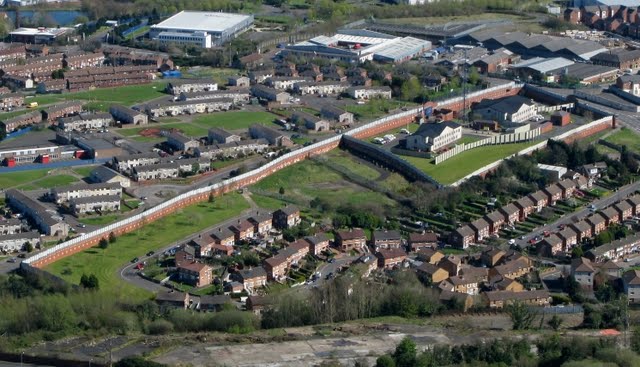The serious criticism by a distinguished media professor suggests that the BBC has compromised its impartiality by depending too heavily on sources from business, the media, law and order and politics.
Professor Justin Lewis, Dean of Research at Cardiff University and an experienced analyst of the BBC’s output, suggested that the BBC Trust had “played down” the findings, which were presented to the governing body last year.
So the BBC’s news agenda is skewed by powerful vested interests since the election in 2010?
Hmmmm…funny I thought it had been reshaped by a Marxist academic named Justin Lewis pre-2009:
22 May 2013
A Cardiff University research project that helped change the way the BBC reports on political issues has been recognised for its impact at the University’s prestigious Innovation and Impact Awards.
Professor Justin Lewis and Dr Stephen Cushion of the University’s School of Journalism, Media and Cultural Studies were awarded the Regional Impact Prize for their work which helped reshape the BBC news agenda so that programming more accurately reflects post-devolution politics in the UK.
“As a result of our work, the BBC was able to significantly improve the quality and accuracy of their news coverage,” said Professor Lewis.
Guess not….must have been a different Professor Lewis.
But hang on…..this contorted theory that the Media is right wing…..and is controlled by the Right…haven’t we heard that before …and from someone calling themselves Justin Lewis in 1997…..
In fact the belief that the Media is ‘Liberal’ is just a myth…for which there is NO evidence at all Lewis assures us:
http://www.youtube.com/watch?v=E2ZldKrInPE
Could it possibly be that Justin Lewis is a bit of a fraud as an academic….his ‘research’ merely confirming what he already wants to believe….the ‘facts’ are shaped to prove his theory?
After all who funded the research he bases his conclusions on? Mike Berry, one of the report’s authors, and a confirmed lefty, said this:
Along with a group of colleagues at Cardiff University, I recently completed a major content analysis of BBC coverage. This research was funded by the BBC Trust as part of an ongoing series of studies examining the impartiality of its reporting in areas such as regional news, the Israel-Palestine conflict, the Arab Spring, business and science.
And :
This is Berry’s final conclusion:
So the evidence from the research is clear. The BBC tends to reproduce a Conservative, Eurosceptic, pro-business version of the world, not a left-wing, anti-business agenda.
Bonkers….I’ll bet he never has to buy a drink when in the company of any BBC journo!
We’ve already looked at him and Cardiff…..
They seem to be flogging this bit of research to death…getting as much mileage out of it as possible…astonishing that the ‘right wing media’ fall for it again and again and keep publishing this story….is it in their interests, either commercial or political, if ‘right wing’, to propagate the idea that their big rival, the BBC, is in fact right wing?
Of course the Media is right wing….there’s the Guardian, Observer, Independent, the Mirror, the Telegraph moved decidedly more leftward and the Daily Mail goes its own way……it happily attacks anyone of any political persuasion if it makes a good headline.
Then there’s the BBC…massively dominant in broadcasting and on the web.
Yep…the Media landscape is controlled by the Right.
The BBC is ‘depending too heavily on sources from business, the media, law and order and politics.‘?
Really? This is the BBC which is desperate to give voice to the IRA, to Muslim terrorists, to Occupy and environmentalists, rioters and turbulent priests…lefty Giles Fraser getting a job….along with Richard Coles…..there’s hardly a rightwing journo at the BBC….who’s out of the closet and admits to it anyway.
The same BBC that trashes Big Business, that trashes the Banks, that has supported Labour’s Plan B, that has consistently attacked welfare reforms and has relentlessly undermined the economy and the recovery….only a couple of days ago Ken Livingstone’s stunt double, Micky Clark, on Wake up to Money, told us there were statistics and there were lies…and government unemployment figures….meaning of course that you couldn’t believe a word of it….employment increasing?….all a big lie fed to us by the right wing media no doubt.
It does seem that Justin Lewis is not speaking from any actual knowledge or experience but purely spews forth a stream of consciousness, a tide of wishful thinking.
The problem with Lewis is that he is too closely tied to the BBC and of course is ‘of the left’ himself’.
Perhaps so far left that the BBC might look right wing to him.
He, and the equally closely tied to the BBC, Cardiff University, does seem to come up with ‘research’ that conveniently supports the BBC against its critics:
Alastair Campbell made the following assertion:
“In the run-up to conflict there was an agenda in large parts of the BBC—and I think the BBC is different from the rest of the media and should be viewed as different from the rest of the media because it is a different organisation in terms of its reputation, in terms of its global reach and all the rest of it—and there was a disproportionate focus upon, if you like, the dissent, the opposition, to our position. I think that in the conflict itself the prism that many were creating within the BBC was, one, it is all going wrong.”
Lewis refutes that:
“Indeed, far from revealing an anti-war BBC, our findings tend to give credence to those who criticised the BBC for being too sympathetic to the government in its war coverage. Either way, it is clear that the accusation of BBC anti-war bias fails to stand up to any serious or sustained analysis.”
This is a BBC that produced an extremely negative documentary about the Iraq War called ‘Fighting the War’. ‘ ‘Fighting the War’….geddit?
The documentary’s timing will fuel the debate over the legitimacy of the conflict as the hunt continues for any evidence that Saddam had weapons of mass destruction.
It comes after the BBC clashed with the government over an edition of its Correspondent programme, which will include a clip of the bodies of two dead British soldiers first shown on Arab station al-Jazeera.
…..and a BBC that has spent 10 years trying to discredit politicians, motives and outcomes, not from journalistic principles but purely because they lost ‘Hutton’ and were proved to have misled the Public by broadcasting lies.
One of the reasons I started looking at the BBC’s coverage of events more closely was because of their anti-war stance…not from the Iraq War but from the start of the war in Afghanistan in 2001…the BBC is innately anti-war as you can see in the way it reacts to any sabre rattling….over Iran for example….suddenly we have lots of programmes about Iranian artistic and culture achievements and little warmhearted chats with Iranians in the UK….all designed to show us how warm and human Iranian people are….and they don’t deserve to be bombed….not to mention they didn’t broadcast the film of a school in Syria that had been bombed just before the vote on military action in Parliament….the likely hood was that the horrors on the film would have influenced the vote…so the BBC hid it…..which is why we have the same bombing of women and children now.
The BBC right wing, pro-war?
The drugs do work.
What we have is a BBC reliant on a band of Marxist academic activists and ex-BBC employees to produce pro-BBC propaganda to cover up the corruption, professional, political and financial, that lies at the heart of the Corporation.
A BBC that refuses to accept the truth about its failure as a news organisation…a failure that is not just one of political bias but of a ‘journalism’ that is all too often slow to pick up on stories and is all too evidently reliant on press releases (or lifting other’s exclusives) rather than investigative journalism.
A BBC that is all too evidently left wing…except to those who have their own agenda to work to.


 says:
says:





